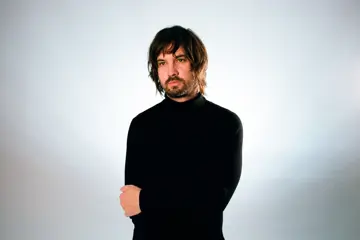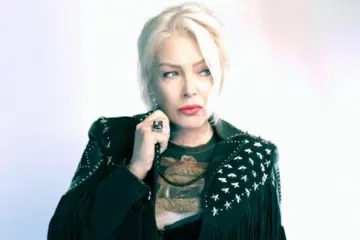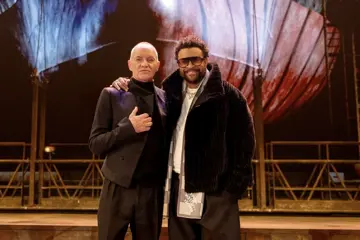As winter gives way to spring, theatre companies across Australia begin to announce their program of works for the upcoming annual season. Despite the lure of high-profile 2017 reveals from state theatre companies and mainstage performing arts groups, this year many eyes in Sydney were firmly fixed on one unlikely place: an independent theatre company based in an old, suburban Sydney church.
The Darlinghurst Theatre Company was formed in 1993 by its still-reigning Artistic Director, Glenn Terry. Initially part of an acting school for adult amateurs, it was incorporated as a not-for-profit theatre company in 1996.
Affectionately nicknamed 'The Darlo', the company is now a celebrated part of the fabric of Sydney theatre, featuring work by talented local actors, directors and other creatives. From 2001 to 2012, their home was a 110-seat theatre space in Potts Point - now the home of music theatre incubator Hayes Theatre Co. Their move to the 200-seat Eternity Theatre space was something of a leap forward. With more space and room to make theatre, there was new, exciting potential for growth within the company and in the scope of its programmed works.
In a relatively short time, the company had made great strides forward but there was still ground left to cover. This was pointedly illuminated in The Darlo's 2016 program and the conspicuous dearth of women on the bill. Of the six plays in the season, only two were written by women and no women were on board to direct. On top of that, the onstage roles skewed male - 18 roles for men at the theatre that year, as opposed to ten for women. Two of the casts were all-male.
Don't miss a beat with our FREE daily newsletter
It was a disappointment, to say the least. Women's voices are frequently devalued in the world and are often forgotten on our stages. Gender parity in the theatre isn't a new concept, either in Australia or overseas; Belvoir faced a similar backlash in 2010 after a heavily-male season announcement; they are now one of the only companies in the country who are consistently on par in terms of gender representation.
There are movements in theatre hubs across the world advocating for space for women on and off stage. Los Angeles group The Kilroys champion plays by women, creating an annual list of the best unproduced new works by female and trans* playwrights and call it a tool for producers committed to ending systemic underrepresentation in the American theatre. In Ireland, protest group #WakingTheFeminists pushed for Abbey Theatre, Ireland's national theatre company, to introduce and adhere to gender equality guidelines. It worked. The group continues to be committed to gender parity in theatre across Ireland, and the movement has spread to New York City. In London, Tonic Theatre's Advance program tasks different performing arts companies each year to proactively explore how they can achieve gender parity within their produced works.
In Australia, actors Lizzie Schebesta, Maryann Wright, Erica Lovell, Matilda Ridgway, Michela Carattini, Ildiko Susany, Libby Munro and financial advisor Julia Newbould are the core team of WITS - Women In Theatre and Screen. Launching the group in urgent response to Darlinghurst Theatre Co's season, a series of town-hall style meetings open to the industry (initially these meetings were only for women; later, men were invited to attend and participate) were held in 2015. After a shaky beginning, with a narrow view of women's' needs that largely favoured white, well-educated women from middle-class backgrounds, the WITS team started to affect change.
The first win involved Darlinghurst Theatre Co itself. The WITS team received a letter from The Darlo's Artistic Director, Glenn Terry. In it, he apologised for the company's oversight and pledged to achieve full gender parity of writers and directors in his 2016 season. This promise was kept, achieving gender parity in the employment of all artists including directors, writers, designers and performers.
WITS hasn't stopped there. In addition to a database of Australian plays and significant roles for and by women, the group is also presenting a two-day festival of plays, play readings and cabaret dedicated to female theatre-makers, featuring a program comprehensively written, directed and staged by women: Festival Fatale.
The festival line-up is appealingly and startlingly diverse. From intersectional black feminist artist Candy Bowers in a blisteringly political and confessional solo show, to Patricia Cornelius' take on rape culture, Slut, the works are uncompromisingly feminine and feminist. Other shows will touch on the non-Indigenous black experience in Australia; the legacy of female stereotypes on stage and screen; climate change and gentrification; societies reliant on tech; and astronaut clowns. This is a festival designed to blow minds wide open with its difference, creativity and scope.
The coup de grace? Festival Fatale will be held at Eternity Theatre - the home of Darlinghurst Theatre Co.















